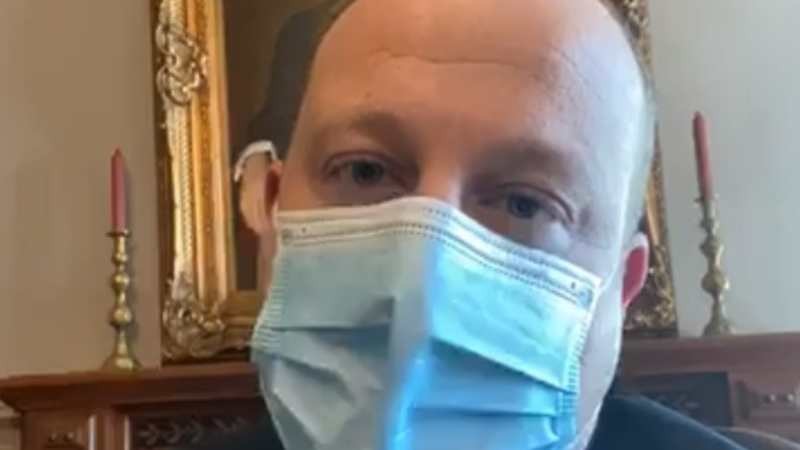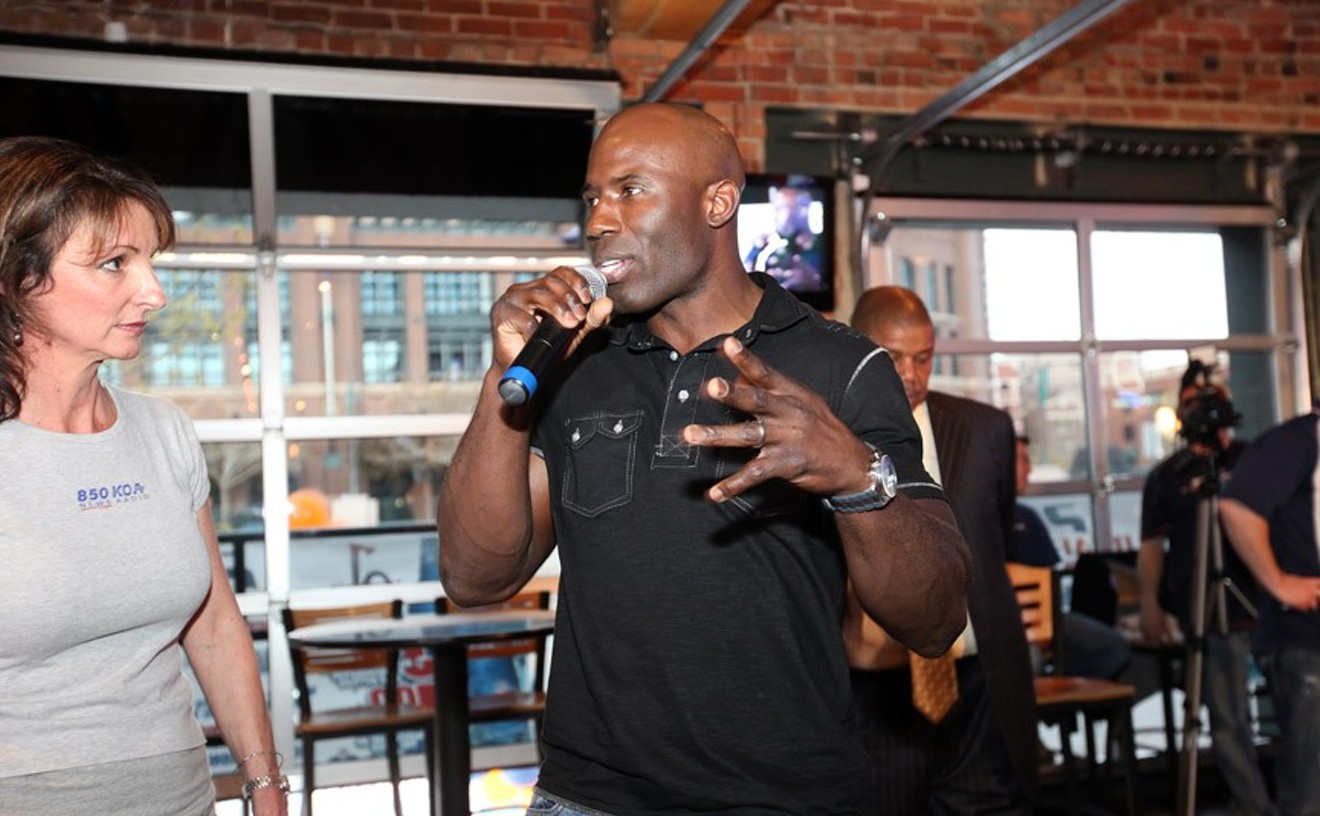The various moves, which continue this morning, June 22, when Polis is scheduled to sign several newly passed pieces of legislation designed to address fallout from the novel coronavirus, are taking place against the backdrop of the state's latest financial forecast, which predicts a rough 2020-2021 fiscal year followed by a rebound that, while sizable, will certainly fall short of the levels hit before the pandemic.
During recent discussions, Polis has warned that Colorado's success to date at flattening the COVID-19 curve could prove ephemeral, particularly given rising case counts in states such as neighborhoring Arizona — and indeed, CNN suggests that the numbers here have been drifting upward in recent days. A closer look at Colorado data from Johns Hopkins University, CNN's source, shows a case bump from June 15 through June 18, followed by a dip the next two days — though the latest level of 212.67 cases per day on June 20 is well above the 159.0 cases per day calculated on June 14.
Polis acknowledged that "data is now starting to show a reversal of some of our gains" in a June 20 statement about the extension of the emergency edict, as well as orders related to criminal justice, rules extending the expiration date of licenses and other documents, and increasing "the Medicaid home health workforce and [eliminating] cost-sharing for coronavirus testing and treatment for Medicaid enrollees." As he put it, "This emergency extension helps Colorado further support our response efforts and remain prepared in the face of this global pandemic."
In addition, Polis made another pitch for widespread mask use, pointing out along the way that Costco now mandates the wearing of facial coverings by customers. (In a post published earlier today, we reported near-universal mask use among patrons at a Costco branch in Littleton on June 19 — but also a failure to limit capacity that resulted in worrisome overcrowding.) Another emergency order expands on the current mask requirements, as outlined in this excerpt:
A. I direct the Executive Director of CDPHE to issue a public health order requiring that employees, contractors, and others providing services for Mass Transportation Operations and Critical Businesses where employees, contractors, or others who interact in close proximity with other employees or with the public must:Alternate-care sites will also stick around for a while longer. The executive order regarding them has been extended for thirty days beyond June 18 "to ensure health care facilities have sufficient resources and to ensure the safety and well-being of COVID-19 patients who no longer require inpatient hospitalization but still require some medical care and observation while recovering from COVID-19."
1. Wear medical or non-medical cloth face coverings that cover the nose and mouth while working, except where doing so would inhibit that individual’s health; and
2. Wear gloves, as appropriate by industry standards, when in physical contact with customers or goods if gloves are provided to workers by their employer.
B. I direct that to better protect employees of Government Offices and Facilities and the public that they serve and to avoid a public health hazard, Government Offices and Facilities must require and enforce, as a condition of ingress or movement within such locations, that all employees who interact in close proximity with other employees or with the public and all members of the public must wear medical or non-medical face coverings that cover the nose and mouth, except where doing so would inhibit that individual’s health or where law enforcement or physical identification verification functions would be inhibited by wearing a mask.
Then there's the quarterly economic forecast from the Governor’s Office of State Planning and Budgeting, which concedes that "Colorado’s overall economic activity remains significantly below February levels. The state lost more than 300,000 jobs in March and April, and the unemployment rate grew from a record-low of 2.5 percent in February to a record-high of 11.3 percent in April."
The report's summary divulges that "after sharp declines in March and April, preliminary indications are that economic activity increased slightly in May and June. The U.S. added more than 2.5 million jobs in May, the largest one-month increase on record, but only slightly more than 10 percent of the jobs that were lost in March and April. Despite recent improvements, the economy remains in crisis. While this recession is likely to be the shortest on record, it is also likely to be the deepest. The economic recovery is expected to be slow and contingent upon public health conditions."
Accompanying graphics help flesh out the story. The general fund calculations show a decline for fiscal year 2020-2021 in the billions, after which the 2021-2022 forecast should inch closer to the amount counted in 2019-2020.
Here's a look at consumer spending in the state, which has plateaued this month at around 15 percent lower than in the days before Colorado's stay-at-home order.
An even sharper decline was seen in the Colorado housing market through March and April.
Other economic indicators are more varied, including those touching upon the marijuana industry. As you can see in this chart, retail sales in counties that rely on tourism fell sharply in March and April — but the percentages were actually up in most of the Denver metro area.
The hope for more progress is at the heart of several bills that Polis will sign this morning. On top of HB20-1360, the so-called "long bill" concerning the 2020-2021 budget, he'll also ink the following:
HB20-1197, 2-1-1 Statewide Human Services Referral SystemThe first of the signings will be streamed on Polis's Facebook page at 9:30 a.m. The long bill signing can be viewed at the same address at 11:45 a.m.
HB20-1410, COVID-19-related Housing Assistance
HB20-1411, COVID-19 Funds Allocation For Behavioral Health
HB20-1412, COVID-19 Utility Bill Payment-related Assistance
HB20-1417, Care Subfund In The General Fund
HB20-1422, Food Pantry Assistance Grant Program
















